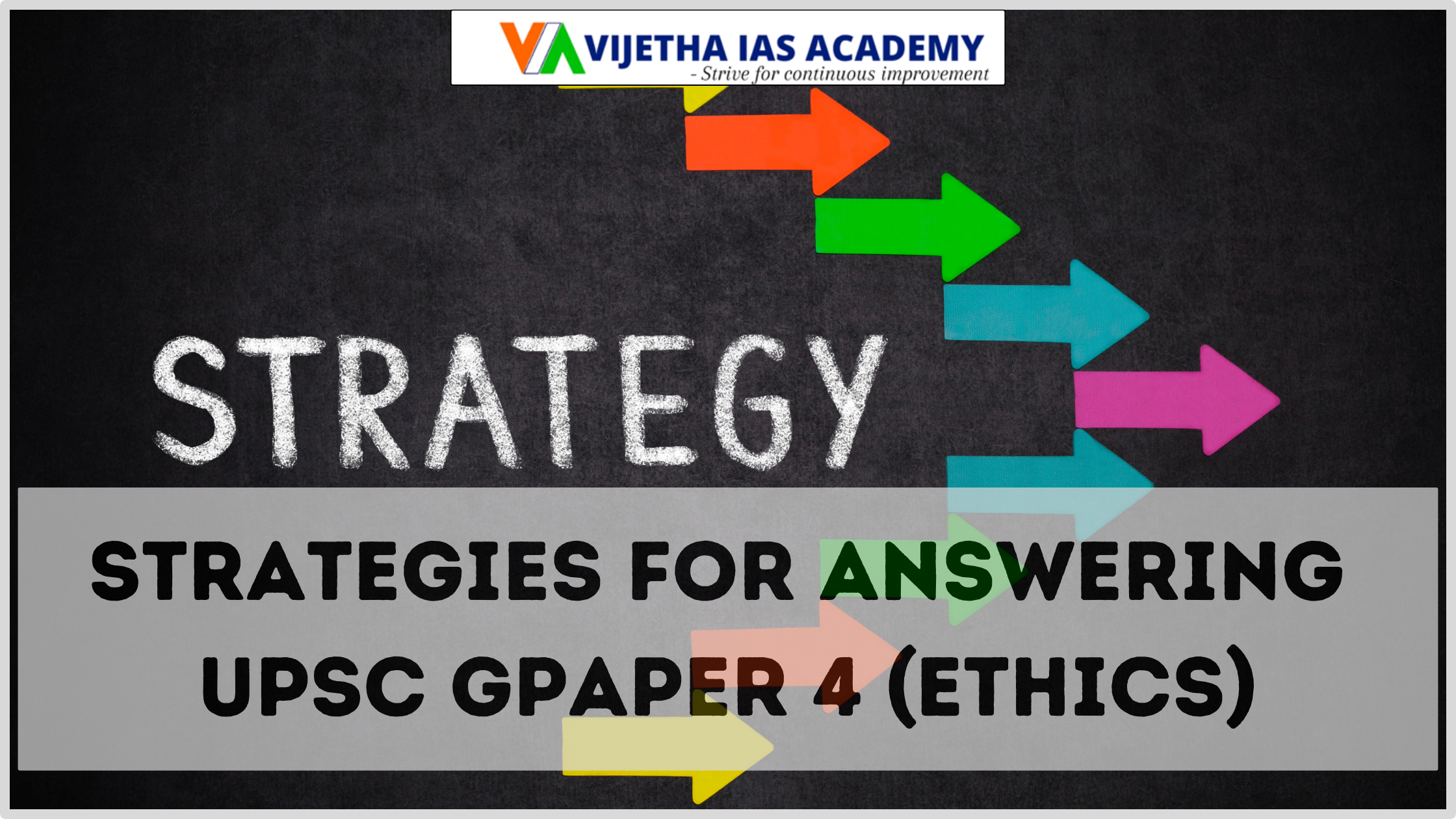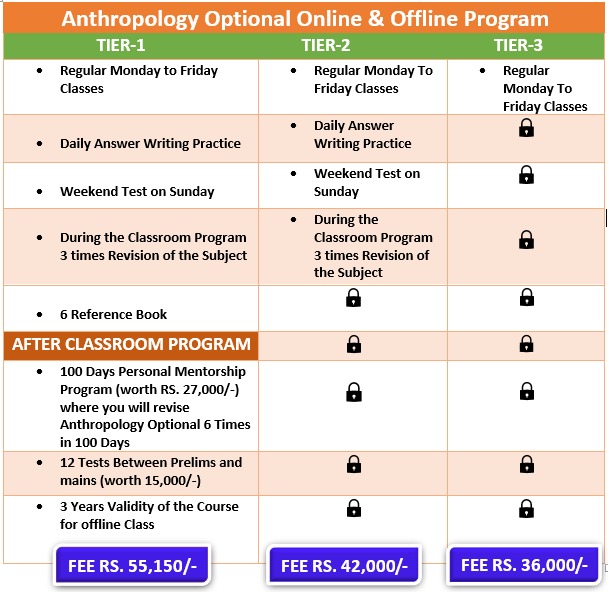
Strategies for Answering UPSC GS Paper 4 (Ethics)
The UPSC General Studies Paper 4 (Ethics, Integrity, and Aptitude) is a crucial component of the Civil Services Mains Examination. It assesses candidates' understanding of ethical principles and their application in public service. This paper requires a unique approach, blending theoretical knowledge with practical examples. In this article, we will discuss effective strategies for answering UPSC GS Paper 4, integrating insights from experts at Vijetha IAS Academy and guidance from Kishore sir in Anthropology.
Understanding the Structure of GS Paper 4
Before diving into strategies, it's essential to understand the structure of GS Paper 4:
- Nature of Questions: The paper consists of theoretical questions, case studies, and scenario-based questions.
- Marks Distribution: It typically carries 250 marks, with questions designed to assess knowledge of ethics and integrity in governance.
1. Familiarize Yourself with the Syllabus
Key Areas to Cover
The syllabus for GS Paper 4 includes the following key areas:
- Ethics and Human Interface
- Attitude and Emotional Intelligence
- Public Service Values and Ethics
- Accountability and Transparency in Governance
- Case Studies on Integrity
Recommended Readings
For effective preparation, refer to standard texts like ""Ethics in Governance"" and ""Indian Ethos and Values."" Additionally, materials from Vijetha IAS Academy can provide valuable insights and resources.
2. Develop a Conceptual Understanding
Focus on Core Concepts
Ethics is a subject rooted in philosophy and real-world application. Ensure you have a strong grasp of core concepts such as:
- Integrity: The quality of being honest and having strong moral principles.
- Accountability: The obligation of individuals to report on their actions and accept responsibility.
- Transparency: Openness in actions and decision-making processes.
Use Real-Life Examples
Incorporate real-life examples and case studies to illustrate your understanding of ethical principles. This not only enriches your answers but also demonstrates your ability to apply theoretical knowledge in practical scenarios.
3. Structure Your Answers Effectively
The Importance of Structure
A well-structured answer enhances clarity and coherence. Follow a clear structure when crafting your responses:
- Introduction: Briefly define key terms and concepts relevant to the question.
- Body: Discuss the main points, supporting them with examples, theories, and case studies.
- Conclusion: Summarize the key takeaways and suggest a way forward if applicable.
Use Bullet Points
When appropriate, use bullet points to organize information clearly. This format improves readability and helps examiners grasp your points quickly.
4. Approach Case Studies with Care
Analyze the Scenario
Case studies are a prominent feature of GS Paper 4. When faced with a case study question, follow these steps:
- Identify the Ethical Dilemma: Clearly outline the ethical issues involved in the scenario.
- Consider Stakeholders: Identify the stakeholders and their interests in the case.
- Apply Ethical Principles: Use ethical frameworks (like utilitarianism, deontology) to analyze the dilemma.
Provide a Well-Reasoned Solution
After analyzing the case, propose a well-reasoned solution that balances the interests of stakeholders while adhering to ethical principles.
5. Cultivate Emotional Intelligence
Importance of Emotional Intelligence
Emotional intelligence (EI) plays a significant role in public service. Demonstrating awareness of EI can enhance your answers, especially when discussing interpersonal relationships and conflicts.
Incorporate EI in Your Answers
When discussing issues involving teamwork or leadership, integrate concepts of emotional intelligence. Discuss how empathy, self-awareness, and relationship management can contribute to ethical governance.
6. Practice Answer Writing Regularly
Importance of Practice
Regular practice is essential for mastering answer writing. Set aside time each week to write answers to past years’ questions or sample questions on ethics.
Seek Feedback
Engage with peers or mentors to review your answers. Constructive feedback can help identify areas for improvement and enhance your writing skills.
7. Time Management in the Exam
Allocate Time Wisely
Time management is crucial during the exam. Allocate time to each question based on its marks and complexity. For example, spend more time on case studies, which often require deeper analysis.
Practice Timed Mock Tests
Taking timed mock tests can help you develop a sense of pacing. Familiarize yourself with the exam format and practice managing your time effectively during mock exams.
8. Revise and Stay Updated
Regular Revision
Regular revision is essential for retaining concepts and frameworks. Schedule periodic reviews of your notes and previous answers to reinforce learning.
Stay Informed on Current Affairs
Ethics and governance are continually evolving. Stay updated on current affairs and new ethical dilemmas faced by public servants. Incorporate contemporary examples into your answers to demonstrate relevance.
9. Use Technology Wisely
Online Resources
Leverage online platforms for additional resources. Websites, webinars, and forums can provide updated content and perspectives on ethical issues. Institutions like Vijetha IAS Academy offer valuable resources and guidance.
Digital Study Tools
Consider using digital tools like flashcards or mind maps to organize ethical concepts and case studies. These tools can enhance understanding and retention.
10. Draw from Personal Experiences
Relate Personal Values
Incorporating personal values and experiences can make your answers more authentic. Discuss how your background and experiences shape your understanding of ethics.
Reflect on Real-Life Scenarios
When relevant, share instances where you faced ethical dilemmas in personal or professional life. This personal touch can enhance the depth of your answers.
Conclusion
Answering UPSC GS Paper 4 (Ethics) requires a combination of conceptual understanding, practical application, and effective communication. By following these strategies, you can enhance your preparation and improve your performance in the examination.
Utilize resources from institutions like Vijetha IAS Academy and insights from experts like Kishore sir in Anthropology to bolster your preparation. With diligent study and practice, you can approach GS Paper 4 with confidence and clarity, ultimately contributing to your success in the UPSC Civil Services Examination.

